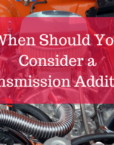 E10 is an ethanol fuel. This might be a misnomer, however, since E10 only contains 10% ethanol at most.
E10 is an ethanol fuel. This might be a misnomer, however, since E10 only contains 10% ethanol at most.
The reason an ethanol fuel may be used comes with the understanding a fuel’s octane rating. This is the ability of a fuel, when burned, to resist 'knock'. Ethanol enhances any fuel it's added to, making it easier to burn. Tests have shown that E10 has a higher octane rating than conventional fuels (known as E0). E10 fuels are coming under the spotlight in marine circles because of concern surrounding the fuel’s suitability for use in older engines.
Some mariners swear against using any ethanol-based fuels for fear of damage to their engines. But how valid are these fears? Is E10 really a superior marine fuel?
Benefits & Disadvantages Of Ethanol Fuel
E10 offers a boat engine a better octane rating, and it may increase its efficiency. Both of these are good reasons to consider running E10 in a marine engine.
However, there are numerous reasons that E10 may damage marine engines quite severely. Older engines don't have parts that are designed to deal with the wear and tear associated with using ethanol in the fuel mixture. Sometimes this can lead to complete failure of the engine.
Additionally, ethanol fuel (like E10) does what ethanol does best - it absorbs water. Boat engines tend to be left open and unsealed. This is less than ideal for E10 fuels. Probably the largest issue comes with the innate performance problems boat owners face by using E10. Phase separation as a result of fuel water contamination can lead to poor engine performance.
Keeping The Engine & Fuel System Safe
E10 has been blamed for a lot of engines issues. However, some boat owners are quick to assign blame to ethanol-based fuels when another problem may be brewing within the engine itself. Be sure to verify the health of your marine engine for other issues that may be present. For a boat owner with no choice (and many of us don't these days), protecting an engine against the ravages of E10 use is an important consideration.
Newer engines are designed to stand up to the everyday use of ethanol-based fuels. Modern manuals state that a fuel mixture with up to 10% ethanol (like E10) is acceptable. The engine will not break down if ethanol is present. Fuel additives may help the situation, but they are by no means a "cure-all" for a boat's E10 problems. In the event of phase separation, the fuel must be discarded, as there is no way to fix this problem.
Helpful Additives From Nitro Nine
If you are looking to protect and enhance your boat engine's performance, we have you covered with Nitro Nine's marine products. ZP-510 Diesel Anti-Gel can aid in preventing gelling at low temperatures, and it can help a marine engine retain workability in even the lowest of temperatures. ZP-515 Heavy Fuel Treatment can aid in preventing the growth and continued existence of bacteria on marine engines, ensuring that they don't negatively affect performance. It also works to disperse sludge and water as well as stabilizes the fuel in the long run. These additives together can go a long way towards improving the function and reliability of a marine engine.
Learn more about what Nitro Nine additives can do for you. Try our product today and let us help to keep your marine engine in proper working condition, even in the face of E10 fuel.


